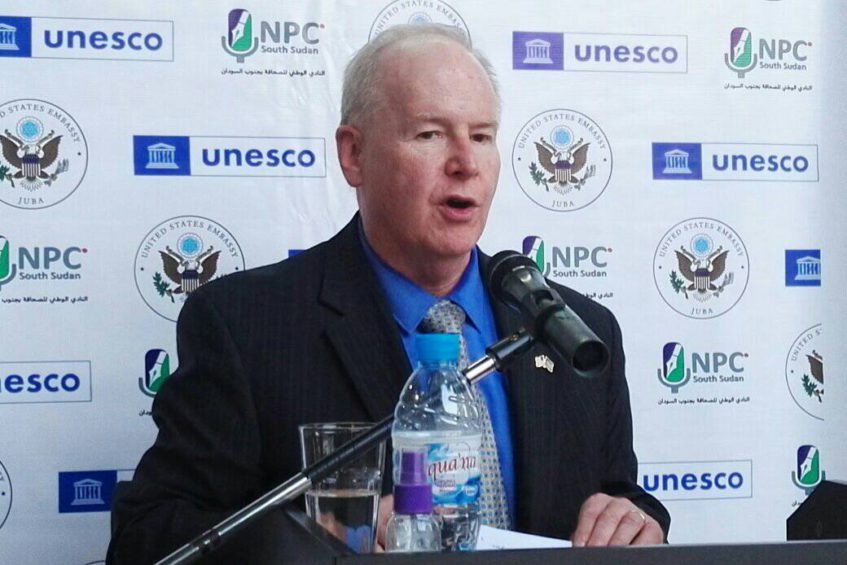
David Renz, U.S. Chargé D’Affaires at the US Embassy in Juba - Credit: Confucius Taban
The US Embassy in Juba has reiterated calls on the government to permit freedom of expression as the basis for the conduct of credible elections.
The statements come days after authorities’ shut down two media outlets in the country.
Last week, the Chairperson of the Union of Journalists told Eye Radio that the media authority has suspended the operations of the English daily newspaper “Number one Citizen” until further notice.
According to Patrick Oyet the media regulatory body claimed that the newspaper has been operating without renewing its documents.
Similarly, national security personnel in Kapoeta Town of Eastern Equatoria State closed Singaita FM over unclear circumstances.
The two media outlets have since remained closed.
Addressing a gathering organized by the National Press Club in Juba on Tuesday, David Renz the U.S. Chargé D’Affaires at the US Embassy in Juba said freedom of expression matters in South Sudan.
“Freedom of expression matters in South Sudan, not as an abstract principle, but as an essential condition for forming a permanent government,” said U.S. Chargé D’Affaires.
“A government of the people, by the people, and for the people of South Sudan created to obtain the blessings of liberty, peace, and prosperity for yourselves and your children.”
In August this year, Vice President, Dr. James Wani Igga reminded government institutions to facilitate access to information and the freedom of media for South Sudan to prosper.
Since South Sudan’s independence in July 2011, freedom of expression has been severely restricted.
According to the UN Commission on Human Rights, South Sudan is one of the most dangerous places in the world to be a journalist.
In February this year, Amnesty International revealed a report accusing the national security of using abusive surveillance to terrorize journalists, activists, and government critics.
Reporters Without Borders also found that several journalists have over the last two years sought refuge outside South Sudan to escape the harassment.
The government has, however, often insisted it accords freedom of the press in South Sudan.
Support Eye Radio, the first independent radio broadcaster of news, information & entertainment in South Sudan.
Make a monthly or a one off contribution.
Copyright 2024. All rights reserved. Eye Radio is a product of Eye Media Limited.